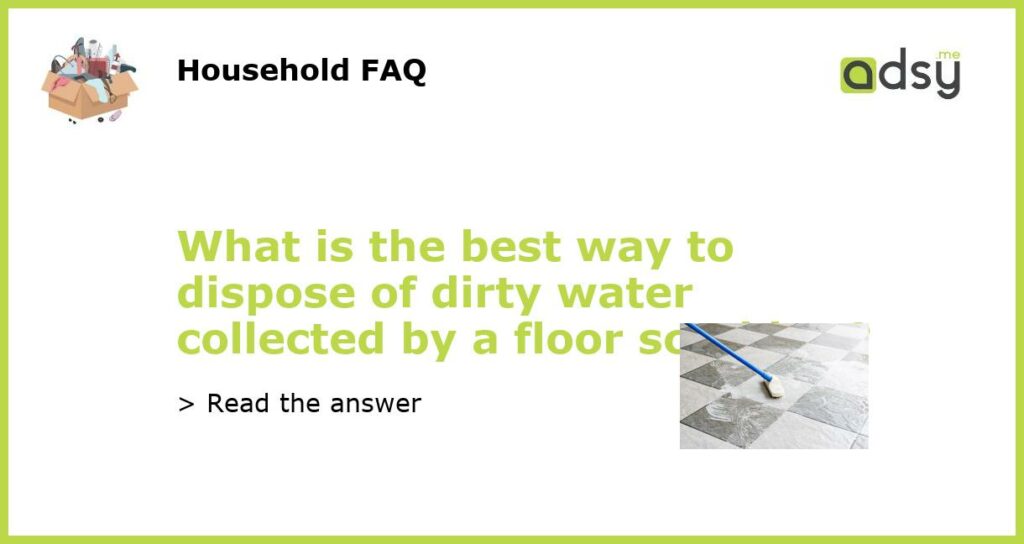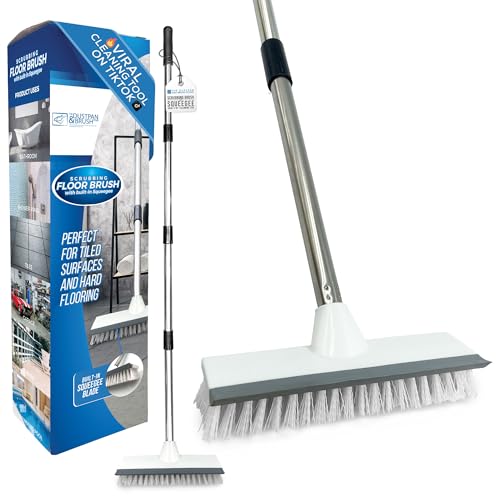The Problem
Using a floor scrubber in industrial or commercial settings can save time and effort in keeping the floors clean. However, this machine uses water to clean the floors, which becomes dirty with the accumulation of dirt, dust, and grime. Disposing of this dirty water correctly is essential to avoid environmental pollution and health hazards.
The Risks
Simply disposing of the dirty water collected by a floor scrubber down the drain can lead to a variety of health hazards. The water may contain hazardous chemicals, oils, and bacteria that can contaminate water bodies, harm aquatic life, and endanger human health. Furthermore, improper disposal of dirty water can result in hefty fines and legal consequences.
The Solutions
The best way to dispose of the dirty water collected by a floor scrubber is to use a proper wastewater management system. There are several wastewater treatment systems available in the market that filter the water and make it safe for disposal. These systems have filters that remove solid waste, chemicals, and oils from the water and purify it to a level that meets the regulatory standards.
The Benefits
Using a wastewater treatment system to dispose of dirty water collected by a floor scrubber is not only environmentally friendly, but it also benefits businesses. The cost of fines for improper disposal can be much higher than the cost of using a wastewater treatment system. Additionally, these systems can extend the lifespan of the cleaning equipment by removing corrosive chemicals and minerals from the water.
The Conclusion
In conclusion, the best way to dispose of dirty water collected by a floor scrubber is to use a wastewater management system. This not only adheres to regulatory standards but also benefits the environment and businesses in the long run.






